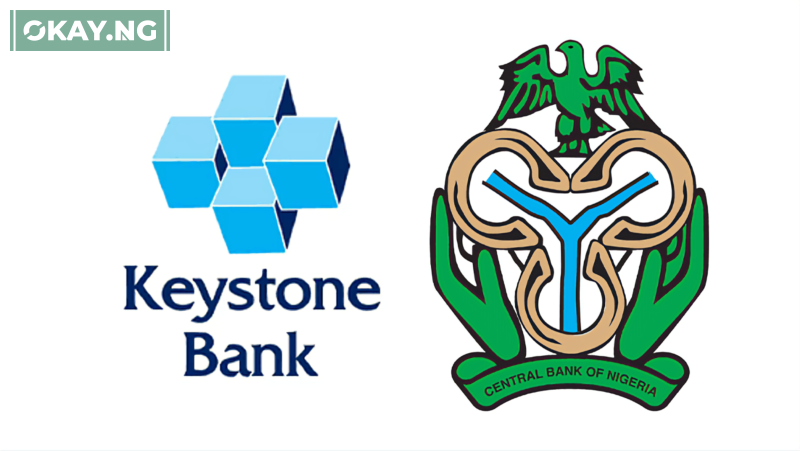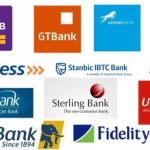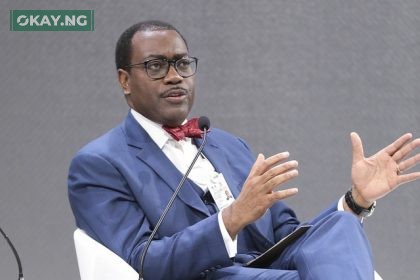On February 11, 2025, the Lagos State Special Offences Court issued a historic decision ordering Sigma Golf Nigeria Limited and Alhaji Umaru H. Modibbo to forfeit Keystone Bank’s shares to the Federal Government of Nigeria. The ruling result of a 13-month regulatory drama that started in January 2024 when the Central Bank of Nigeria (CBN) dissolved the bank’s board due to governance violations 5714. The previous orders have been alleged of a N20 billion fraud case involving misdirected AMCON cash.
FG Keystone Bank Takeover: The Backstory
The CBN’s intervention in January 2024 followed allegations of corporate governance failures, including financial mismanagement and opaque transactions. Economic and Financial Crimes Commission (EFCC) investigation into the alleged diversion of N20 billion of Asset Management Corporation of Nigeria (AMCON) funds for the acquisition of Keystone Bank shares. Sigma Golf and former AMCON MD Ahmed Kuru were accused of funnelling public funds through Heritage Bank to acquire Keystone shares illegally. While the former AMCON Managing Director, Ahmed Kuru, pleaded not guilty, Sigma Golf Chairman, Umaru Modibbo, admitted guilt and entered a plea bargain, leading to the forfeiture of the company’s shares to the Federal Government.
The court’s forfeiture order, part of a plea bargain, solidified the FG’s ownership and closed a chapter of instability. The ruling, issued by the Lagos State Special Offences Court, marks a turning point in government intervention in the banking sector, raising questions about regulatory oversight, investor confidence, and the broader economic implications.
The events leading up to the government takeover of Keystone Bank have been years in the making.
- January 2024: The CBN dissolved the bank’s Board and Management, citing corporate governance breaches and financial irregularities.
- EFCC Investigation: The anti-corruption agency uncovered evidence suggesting that Sigma Golf Nigeria Limited used diverted AMCON funds to acquire Keystone Bank.
- Court Ruling (February 2025): The Lagos State Special Offences Court ordered the forfeiture of all Keystone Bank shares previously held by Sigma Golf, making the Federal Government the sole owner.
According to Hakama Sidi Ali, Acting Director of Corporate Communications at CBN, the takeover was necessary to ensure financial stability and protect depositors’ funds.
“For clarity, the Court Order merely reaffirmed the Central Bank of Nigeria’s prior decision to take over the management of Keystone Bank Limited in January 2024, following a change in its leadership. Since then, the CBN has closely monitored the bank’s operations to ensure they are in full compliance with regulatory standards, operational transparency, and the interests of depositors.”
Implications: Depositor Panic and Investor Jitters
While the CBN swiftly reassured the public that Keystone remains “safe, sound, and fully operational”, customers flooded branches to withdraw funds, fearing a collapse. “I emptied my account immediately—I can’t risk losing my savings,” said Lagos trader Funmilayo Adebisi, echoing widespread anxiety. Although the CBN was quick to calm the rising tension:
“We acknowledge that this development may have triggered customer concerns; however, we wish to underscore that the stability of the banking system and the safety of depositors’ funds remain our top priorities. Keystone Bank’s operations are entirely secure, and there is no reason for concern.”
For investors, the Keystone Bank takeover stirs mixed emotions. On one hand, the move eliminates uncertainty around the bank’s ownership. Keystone’s statement that it is now “well-positioned for sustained growth” aligns with the FG’s goal of stabilising the sector ahead of a 2026 recapitalisation deadline. Yet analysts warn that nationalisation risks repeating past mistakes. “Government ownership often breeds inefficiency and deters foreign investment,” cautioned an anonymous Lagos-based economist.
Benefits
With the Central Bank of Nigeria (CBN) now overseeing operations, what does this mean for depositors, investors, and the future of Nigeria’s banking sector? The takeover offers potential upsides:
Stabilisation: The CBN’s direct oversight ensures compliance with regulatory standards, reducing risks of further governance lapses.
Recapitalisation Pathway: With clearer ownership, Keystone can attract strategic partnerships or mergers to meet capital requirements.
Sector-Wide Accountability: The case signals the EFCC and CBN’s resolve to tackle financial crimes, potentially deterring malpractice elsewhere.
The CBN’s Balancing Act
The apex bank faces dual pressures: restoring trust while avoiding overreach. Its repeated assurances—emphasising “operational transparency” and depositor safety—aim to calm nerves. Furthermore, critics argue that prolonged state control could undermine market confidence; however, the CBN’s intervention underscores the regulator’s commitment to financial stability. By taking over the management of Keystone Bank, the CBN has reinforced investor confidence in its ability to act decisively against financial malpractice.
While government intervention reassures depositors, it also raises concerns among investors. The forfeiture of shares due to financial misconduct sends a strong message about corporate governance but may also discourage foreign investment. Maintaining transparency in the bank’s management will be critical to restoring investor confidence.
Additionally, the Nigeria Keystone Bank takeover highlights the ongoing governance challenges in Nigeria’s banking sector. The CBN’s crackdown on financial irregularities signals a renewed emphasis on accountability, but it also raises concerns about systemic weaknesses that allow such issues to persist.
Worth noting is in the short term, Keystone Bank remains operational with CBN oversight, ensuring stability. However, the long-term future of the bank remains uncertain.
Will the government retain Keystone Bank indefinitely, or will it seek new private investors? If the latter, who will be the next strategic partner?
Trust on Trial
For ordinary Nigerians, the saga underscores fragile trust in financial institutions. While Keystone insists it remains “healthy and resilient, the rush to withdraw funds reveals deep-seated scepticism. Rebuilding this trust demands more than statements—it requires demonstrable accountability and growth.
The FG’s takeover of Keystone Bank is a microcosm of Nigeria’s broader banking challenges. As the CBN navigates this transition, its success will hinge on transparency, swift recapitalisation, and a clear exit strategy from state ownership. For now, depositors and investors alike watch closely, hoping stability outweighs scepticism.












